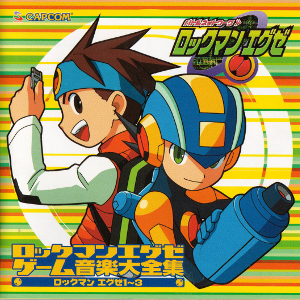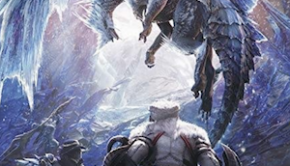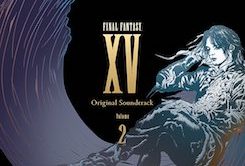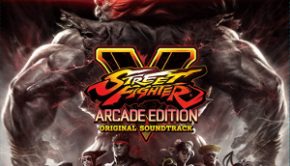Mega Man Battle Network 1 / 2 / 3 Complete Music Collection
 |
Album Title: Mega Man Battle Network 1 / 2 / 3 Complete Music Collection (Rockman EXE Game Music Complete Works: Rockman EXE 1 ~ 3) |
| Record Label: Suleputer |
|
| Catalog No.: CPCA-1069/70 |
|
| Release Date: December 18, 2002 |
|
| Purchase: Buy Used Copy |
Overview
The Mega Man Battle Network series takes place in a parallel universe to the Mega Man series in which networking technology advanced over robotics. The gameplay of the series shifted away from the action platforming roots of the Mega Man franchise in favour of a curious blend of RPG, action, and adventure elements. The first three games for the series were all released for the Game Boy Advance in 2001 and 2002. Their soundtracks were penned by Akari Kaida and Yoshino Aoki, who were until then best known for their work on a very different kind of RPG series: Breath of Fire. The album reviewed here compiles the three soundtracks for both of these, as well as a handful of bonus arrangements, into a two-disc package. The album is now out of print, but its contents have been replicated in the Mega Man Battle Network Sound Box featuring the music from the entire series.
Body
The title theme for Mega Man Battle Network sets the scene for what to expect for the rest of the album. Akari Kaida generally follows the approach of the Mega Man titles for the NES: three musical voices, a simple binary form, and a strong melodic focus. While the track could have been a pale imitation, Kaida ensures the melody is an unforgettable one and fills it with the free spirit of MegaMan.EXE. Even the synthesis here is reminiscent of the NES titles. Rather than use the Game Boy Advance’s feeble sound chip to imitate acoustic instruments, Kaida harnesses it to create a pleasant chiptune sound that somehow fits with the game’s retrofuturistic visuals. For the stage/dungeon theme, “Running Through the Cyber World”, Kaida remixed the main theme into a more elaborate chiptune piece befitting the onscreen action platforming. The end result is one of the series’ biggest highlights and has been subject of several arrangements since. The chiptune influence continues with the free-spirited “Hometown”, frivolous “School”, and more reflective “Moment of Fate”, which are used during the RPG-like sequences in the game’s overworld. Just like the title theme, these tracks make up for their compositional simplicity through their catchy melodies and strong characters.
Mega Man Battle Network offers plenty of other distinguished compositions for the game’s other stages. Long-time fan favourite “Fire Field” captures the image of FireMan with a suitably edgy composition blending rock-spirited melodies typical of the series with more irregular phrasing and beat-heavy sections during the development. By contrast, the electronic fusions “Electrical Crisis” and “Boundless Network” reflect the game’s futuristic setting; whereas the former is a pulsating action track befitting ElecMan’s stage, the latter portrays the sequences inside the in-game Internet with its transcendent ambient synthpads. Between these highlights, there’s also the discordant “Red or Blue”, tense “Cold and Silent”, and the surprisingly plodding final stage theme “Void”. These tracks bring plenty of variety to the gameplay, but will have relatively niche stand-alone appeal given their relatively bland melodies and approaches. There are a few other throwaway tracks along the way, such as the highly repetitive “Incident!” and “Suspicious Mood?!” The three battle tracks are better than average Mega Man fare, each suitably blending tense rhythm elements with motivating melodic elements to different degrees, with the normal battle theme sustaining extensive in-game repetition particularly well. The ending theme is an inspired emotional remix of the main theme that is even laced with some piano work.
For the sequel, Yoshino Aoki stayed faithful to her contemporary’s overall approach while developing upon it in a number of ways. This is reflected by the opening track: the first part of the tune is a confident electro remix of the series’ main theme, while the second part introduces a fresh new melody. Other retreads such as “Hometown” and “Proof of Bravery” blend the original game’s chiptune melodies with techno beats befitting the series setting. Aoki also created plenty of new content for Mega Man Battle Network 2, resulting in soundtrack with 1.5 times more tracks. Many of these are RPG-inspired tunes that embellish the game’s overworld. “Okuden Dani”, “Begin a Journey”, and “Country Town Scenery” prove excellent ‘strolling tunes’ thanks to their catchy melodies and deceptive simple arrangements. They could easily fit in a NES RPG. Other standouts include “Ameroppa Castle”, in which Aoki provides some charming chiptune twists on the standard regal tune, as well as the surprisingly nuanced “Journey in the Sky”. However, a lot of the new tracks are fast-looping, repetitive tracks such as “Alley”, “Underground Prison”, “Secret Manoeuvres”, or “At the Edge of Sorrow”. These tracks were generally used in minor circumstances in the game, but prove quite troublesome additions to the soundtrack release. Likewise, no amount of arranging can make the carryovers “Incident!” and “Suspicious Mood?!” remotely decent.
The stage themes for Mega Man Battle Network 2 are also somewhat disappointing. “Smoky Field” is a groovy first stage theme, but lacks the melodic charm or rich development of its predecessors. “A Serious Mission” and “Fear in the Castle” are both decent compositions, but on the lower end of the Mega Man stage theme rankings. Worse still, the frantic and dissonant themes for QuickMan (“Time Limit”) and MagneticMan (“Magnetic Airplane”) will be instant turnoffs for many listeners; they certainly fit the enemies they portray, but are so overbearing that most stand-alone listeners and game players won’t tolerate them. Making up for these disappointments, the final stage theme “You Can’t Go Back” is a fantastic Mega Man anthem filled with heroic melodies and choppy bass lines. The Internet theme is clearly inspired by “Boundless Network”, but with a stronger focus on melody over soundscaping, whereas its dark counterpart “Fearful” is filled with dissonant electronic noise. Another further highlight is “And You Will Know the Truth”, an elaborate remix of the series’ main theme. Rounding off the soundtrack are the three battle tracks, including the stellar “Virus Busting”, as well as a mellow ending theme exuding with 8-bit charm.
Moving to the second disc, Aoki returned for the third instalment of the series that was released just a year later. For the more part, she offers a more consistent offering overall. Aoki demonstrates greater confidence in capturing that NES adventure sound with the likes of “Sea Breeze Town”, “Scientific Forefront”, and “N1 Grand Prix!”. These tracks feel considerably tighter in both composition and implementation than those featured earlier in the series. Of course, they each feature ultra-hummable melodies too. Aoki also offers some bolder explorations of electronic timbres this time round, most notably in the rich techno track “Navi Customiser”, the ethereal Internet theme “Network is Spreading”, and the distorted “Dangerous Black”. Other tracks such as the serene “Tree of Life”, moody “Wily Research Lab”, and vast “Shine in the Dark” bring plenty of character to the game’s locations. Between such highlights, there are occasional disappointments such as the repetitive peppy sounds of “TV Station”, generic sinister theme “Hell Island”, or the brief “Theme of WWW”, but they’re not as numerous as those of the last instalment. Along the way, there are also a few welcome reprises such as “Hometown” in its grooviest take to date or “Theme of Rockman EXE 3” and “Proof of Bravery” that incorporate the series’ ever-welcome main theme.
The stage themes are a definite improvement on the last instalment, though they’re disappointingly few in number given the series shift towards RPG over action influences. Aoki makes up for the failures of “Time Limit” and “Magnetic Airplane” from the last instalment with “Maze of Wilderness”; she captures the disorientating in-game environment with fast pacing and dissonant phrasing, while still offering listeners a pleasant overall experience with catchy melodies and motivating beats. “Save a Life” achieves a similar balance. The first and last stage themes, “Build Mode” and “Final Transmission”, are catchy chiptune anthems written in the trademark style of the Mega Man series. The battle themes are more numerous this time round, with stand-alone highlights including “Shooting Enemy” with its motivating melodies and “VS. Proto” with its fabulous arpeggiations, while the ending theme “farewell” suitably rounds off the series’ best soundtrack. The second disc closes with four bonus arrangements that Aoki created for the series’ soundtrack release. “Theme of Rockman EXE” and “Navi Customiser” are polished electronic remixes that present fresh perspectives on the game’s futuristic world. However, the real highlights are the impressionistic solo piano arrangement of “Tree of Life” and the a capella performance of “farewell”. Musically sophisticated, emotionally rich, and technically polished, these arrangements completely transform the original material into substantial artistic achievements.
Summary
Overall, those who enjoyed the original Mega Man and Mega Man X series are bound to enjoy the music of Mega Man Battle Network. Kaida and Aoki capture the melodic flair and adventurous character of the wider franchise, particularly with the battle and stage music here. However, they also manage to give the Battle Network series its own flavour to reflect its retrofuturistic visuals and RPG-like gameplay. Their decision to focus on chiptune elements, rather than use the feeble Game Boy Advance sound chip to create a more traditional soundtrack, was particularly inspired. However, there are a lot of filler tracks within this collection that brings down the quality of the listening experience. Whereas the soundtracks of the first and second games are 3.5 star efforts, the third is more worthy of 4 stars. All in all, a solid collection that Mega Man aficionados should seriously consider picking up. However, it may be better to invest in the six-disc Mega Man Sound Box rather than this out-of-print package.
Do you agree with the review and score? Let us know in the comments below!
3.5
Posted on July 17, 2016 by Chris Greening. Last modified on July 17, 2016.














